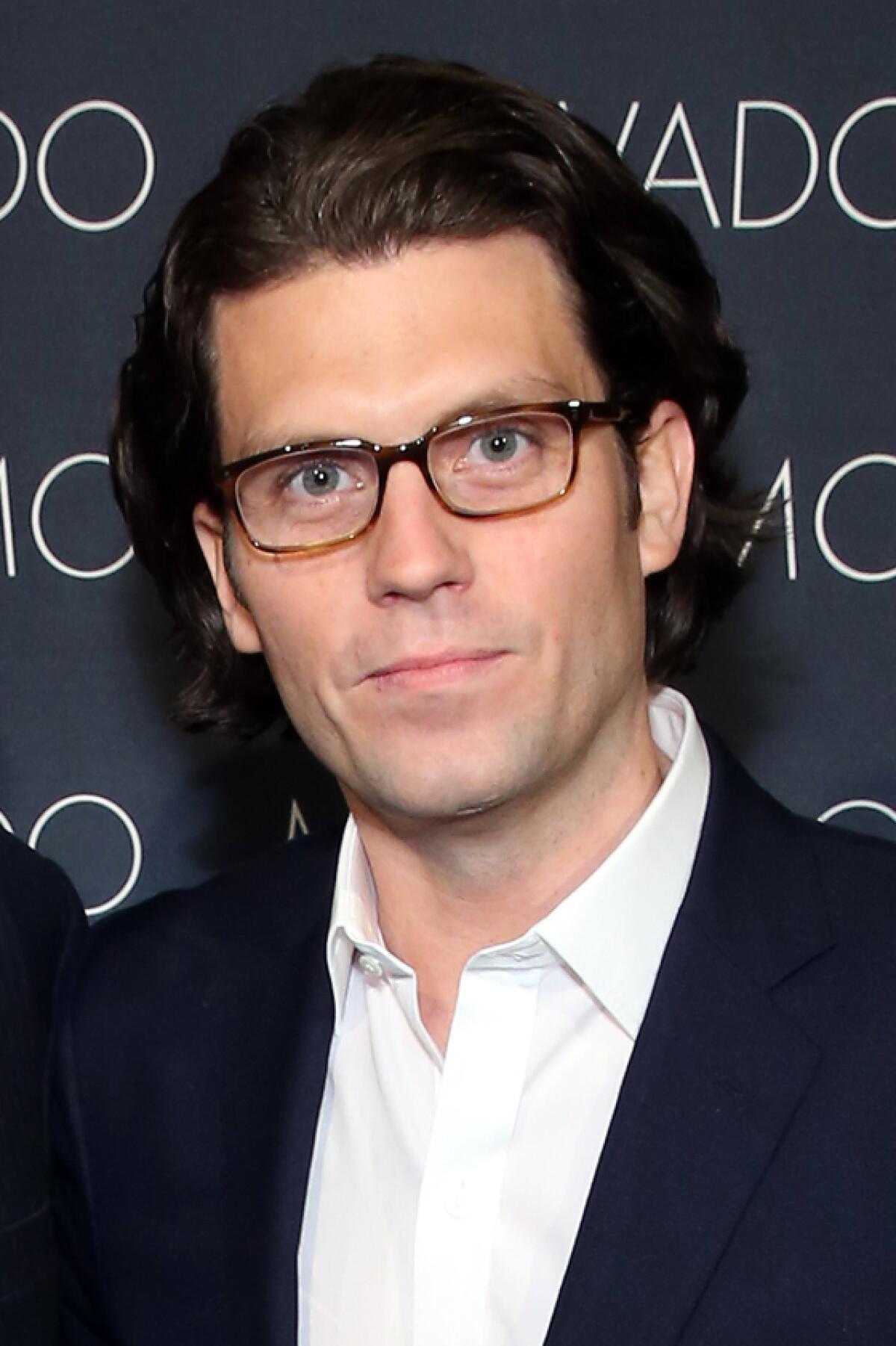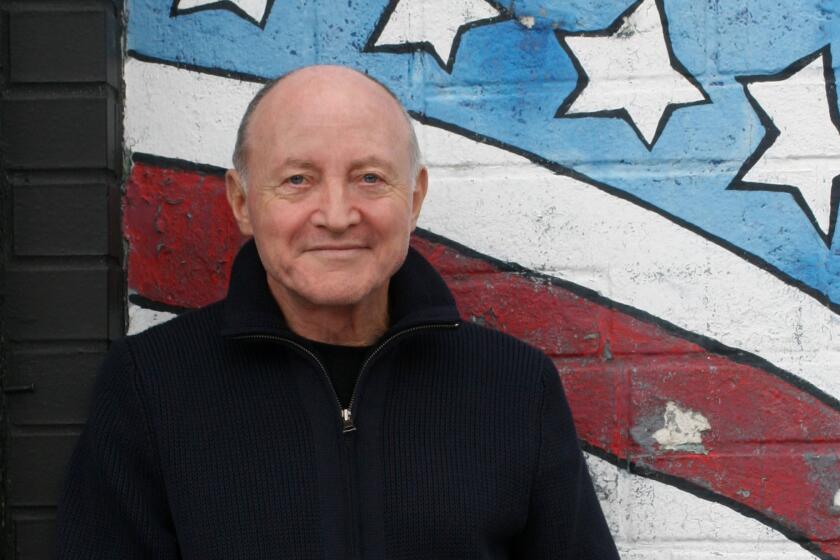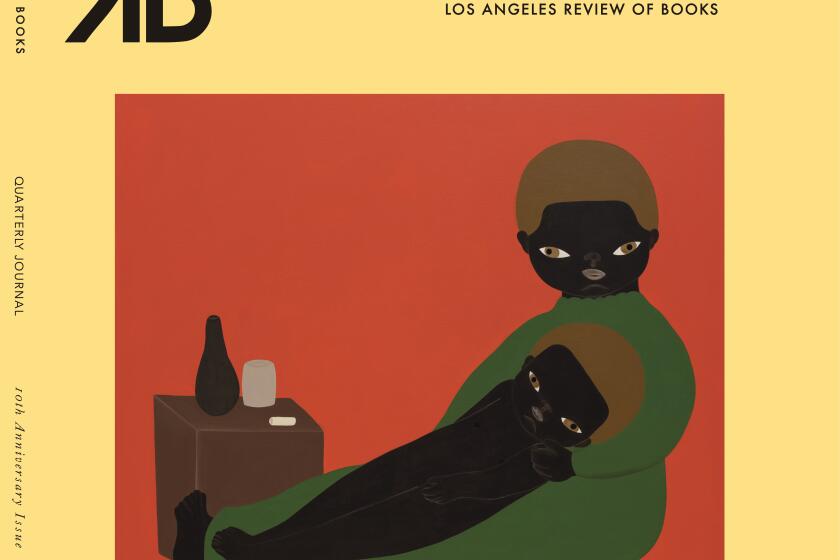A (hopefully premature) obituary for Bookforum and the magazines that connect us

- Share via
What was it about Bookforum? The announcement on Monday morning that the current issue of the publication, founded in 1994, would be the last, has provoked an outpouring … not of protest (although that too) so much as of grieving. I feel it, too, this sense of loss and anger, this feeling that something essential is being needlessly destroyed.
That’s because for so many of us in the book world, this quarterly review journal represented a kind of critical apotheosis, positioned in the middle territory between service journalism and the academy. As both reader and writer (I published several reviews and essays there between 1998 and 2008), there was something special in the way Bookforum privileged voices — those of the critics as well as of the writers under review. To engage with an issue has long felt to me like going to a fabulous party where the guests are not just brilliant but also personable. This is how criticism is supposed to operate, to get your blood up. It reminds you of how much all this matters. It reminds you that literature is a collective soul.
For the record:
9:22 a.m. Dec. 16, 2022An earlier version of this article reported that Penske Media had closed down Bookforum. Penske Media acquired its parent publication, Artforum International, but not Bookforum.
Collective soul is how I might describe Bookforum also. It was edgy, opinionated, willing to be provocative, and it encouraged the same of its contributors. The first piece I wrote for the magazine was a takedown of William Gass’ collection of novellas “Cartesian Sonata” — bloodless, as Gass’ fiction often was. Rather than leave it at that, however, I was encouraged to go further, to frame the collection not only on its own terms but also in relation to Gass’ monumental achievement as an essayist. To consider his writing more broadly, in other words.
This was a hallmark of the journal, which pushed me to think about both my own work and that of others. It encouraged me to read ambitiously. Moira Donegan on Sarah Schulman, Meghan O’Rourke on Lynne Tillman, Tillman on Don DeLillo’s “Underworld.” Such pieces remain models as much as they are reviews or essays. They rewire our understanding of what criticism is, and what it can do.
‘Never give people what they want, or they’ll hate you for it,’ said Lotringer, founder of the influential publisher Semiotext(e), who died last week.
This is not to say Bookforum was without antecedent; it’s impossible to imagine it existing, for instance, without the example of publications such as the New York Review of Books, the Village Voice Literary Supplement and the London Review of Books. All of them also published extended review essays and urged contributors to push the boundaries of their work. At the same time, the magazine felt to me a bit more open, or perhaps it’s more accurate to say: less doctrinaire. The work that resonates (Ismail Muhammad on Charlottesville, Heather Havrilesky on “Wonder Woman”) framed books through the lens of a wider cultural engagement; they sought to make connections beyond the page.
Perhaps the finest example of this — and among my favorite critical essays — is Lucy Sante’s 2007 exegesis on Georges Simenon. Here’s how Sante ends that piece: “You the reader are pulled into the situation, maybe against your better judgment, by an irresistible wish to figure out what exactly is wrong with the picture. And then, helplessly, you witness spiraling chaos …. Simenon’s genius — his native inheritance, refined into art — was for locating the criminal within every human being. At the very least, it is impossible to read him and remain convinced that you are incapable of violence. Every one of his books is a dark mirror.” Complicity, chaos, a sense of context: This is what, at its sharpest, criticism means to evoke.
Earlier this month, Penske Media Corp., which owns Rolling Stone and Variety, among other publications, purchased Bookforum’s parent publication, Artforum International Magazine; although no reason has been given for the shutdown, its timing, just five days after the sale, is striking.
(After this story’s publication, a representative for Penske Media offered a clarifying statement: “Penske Media acquired ARTFORUM to add to its portfolio of art publications. Penske Media did not acquire BOOKFORUM. Any decision related to the sale or closure of BOOKFORUM is unrelated to Penske Media.”)
Either way, here’s what I know: I’m tired of losing outlets to conglomeration. I’m tired of culture being under siege because of money, of corporations and the wealthy buying platforms and destroying them just because they can.
In a virtual event Thursday night, the Los Angeles Review of Books celebrated its 10-year anniversary with Steph Cha, Margaret Atwood and others.
I keep thinking about the Believer — sold out from under its editors by the University of Nevada, Las Vegas, only to be rescued after a public uproar. Something similar could also happen here. But if this really is the last issue of Bookforum, I want to remember its vitality. I want to remember the feeling of seeing each issue in my mailbox, checking the table of contents, bookmarking the work I wished to read. The current issue is no exception, which only makes the situation that much more fraught. This is not a dying journal, in other words, but a thriving one: Sasha-Frere Jones on Gordon Matta-Clark, Harmony Holiday on Hilton Als, Stephanie Burt on N.K. Jemisin. Here, we see the conversation that is being taken from us. There is no more elemental dialogue.
Ulin is a former book editor and book critic of The Times.
More to Read
Sign up for our Book Club newsletter
Get the latest news, events and more from the Los Angeles Times Book Club, and help us get L.A. reading and talking.
You may occasionally receive promotional content from the Los Angeles Times.










